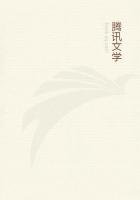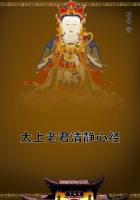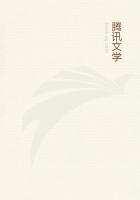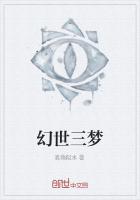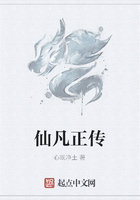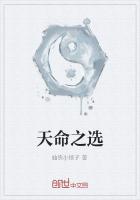Why, he said, no art of hunting extends beyond hunting and capturing; and when the prey is taken the huntsman or fisherman cannot use it; but they hand it over to the cook, and the geometricians and astronomers and calculators (who all belong to the hunting class, for they do not make their diagrams, but only find out that which was previously contained in them)--they, I say, not being able to use but only to catch their prey, hand over their inventions to the dialectician to be applied by him, if they have any sense in them.
Good, I said, fairest and wisest Cleinias. And is this true?
Certainly, he said; just as a general when he takes a city or a camp hands over his new acquisition to the statesman, for he does not know how to use them himself; or as the quail-taker transfers the quails to the keeper of them. If we are looking for the art which is to make us blessed, and which is able to use that which it makes or takes, the art of the general is not the one, and some other must be found.
CRITO: And do you mean, Socrates, that the youngster said all this?
SOCRATES: Are you incredulous, Crito?
CRITO: Indeed, I am; for if he did say so, then in my opinion he needs neither Euthydemus nor any one else to be his instructor.
SOCRATES: Perhaps I may have forgotten, and Ctesippus was the real answerer.
CRITO: Ctesippus! nonsense.
SOCRATES: All I know is that I heard these words, and that they were not spoken either by Euthydemus or Dionysodorus. I dare say, my good Crito, that they may have been spoken by some superior person: that I heard them I am certain.
CRITO: Yes, indeed, Socrates, by some one a good deal superior, as Ishould be disposed to think. But did you carry the search any further, and did you find the art which you were seeking?
SOCRATES: Find! my dear sir, no indeed. And we cut a poor figure; we were like children after larks, always on the point of catching the art, which was always getting away from us. But why should I repeat the whole story?
At last we came to the kingly art, and enquired whether that gave and caused happiness, and then we got into a labyrinth, and when we thought we were at the end, came out again at the beginning, having still to seek as much as ever.
CRITO: How did that happen, Socrates?
SOCRATES: I will tell you; the kingly art was identified by us with the political.
CRITO: Well, and what came of that?
SOCRATES: To this royal or political art all the arts, including the art of the general, seemed to render up the supremacy, that being the only one which knew how to use what they produce. Here obviously was the very art which we were seeking--the art which is the source of good government, and which may be described, in the language of Aeschylus, as alone sitting at the helm of the vessel of state, piloting and governing all things, and utilizing them.
CRITO: And were you not right, Socrates?
SOCRATES: You shall judge, Crito, if you are willing to hear what followed; for we resumed the enquiry, and a question of this sort was asked: Does the kingly art, having this supreme authority, do anything for us? To be sure, was the answer. And would not you, Crito, say the same?
CRITO: Yes, I should.
SOCRATES: And what would you say that the kingly art does? If medicine were supposed to have supreme authority over the subordinate arts, and Iwere to ask you a similar question about that, you would say--it produces health?
CRITO: I should.
SOCRATES: And what of your own art of husbandry, supposing that to have supreme authority over the subject arts--what does that do? Does it not supply us with the fruits of the earth?
CRITO: Yes.
SOCRATES: And what does the kingly art do when invested with supreme power? Perhaps you may not be ready with an answer?
CRITO: Indeed I am not, Socrates.
SOCRATES: No more were we, Crito. But at any rate you know that if this is the art which we were seeking, it ought to be useful.
CRITO: Certainly.
SOCRATES: And surely it ought to do us some good?
CRITO: Certainly, Socrates.
SOCRATES: And Cleinias and I had arrived at the conclusion that knowledge of some kind is the only good.
CRITO: Yes, that was what you were saying.
SOCRATES: All the other results of politics, and they are many, as for example, wealth, freedom, tranquillity, were neither good nor evil in themselves; but the political science ought to make us wise, and impart knowledge to us, if that is the science which is likely to do us good, and make us happy.
CRITO: Yes; that was the conclusion at which you had arrived, according to your report of the conversation.
SOCRATES: And does the kingly art make men wise and good?
CRITO: Why not, Socrates?
SOCRATES: What, all men, and in every respect? and teach them all the arts,--carpentering, and cobbling, and the rest of them?
CRITO: I think not, Socrates.
SOCRATES: But then what is this knowledge, and what are we to do with it?
For it is not the source of any works which are neither good nor evil, and gives no knowledge, but the knowledge of itself; what then can it be, and what are we to do with it? Shall we say, Crito, that it is the knowledge by which we are to make other men good?
CRITO: By all means.
SOCRATES: And in what will they be good and useful? Shall we repeat that they will make others good, and that these others will make others again, without ever determining in what they are to be good; for we have put aside the results of politics, as they are called. This is the old, old song over again; and we are just as far as ever, if not farther, from the knowledge of the art or science of happiness.
CRITO: Indeed, Socrates, you do appear to have got into a great perplexity.
SOCRATES: Thereupon, Crito, seeing that I was on the point of shipwreck, Ilifted up my voice, and earnestly entreated and called upon the strangers to save me and the youth from the whirlpool of the argument; they were our Castor and Pollux, I said, and they should be serious, and show us in sober earnest what that knowledge was which would enable us to pass the rest of our lives in happiness.
CRITO: And did Euthydemus show you this knowledge?

